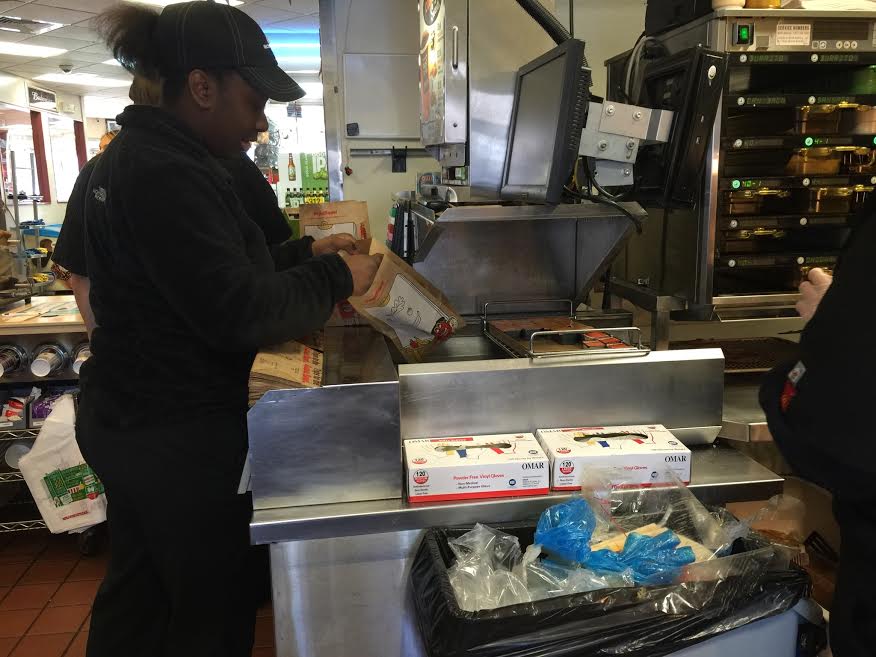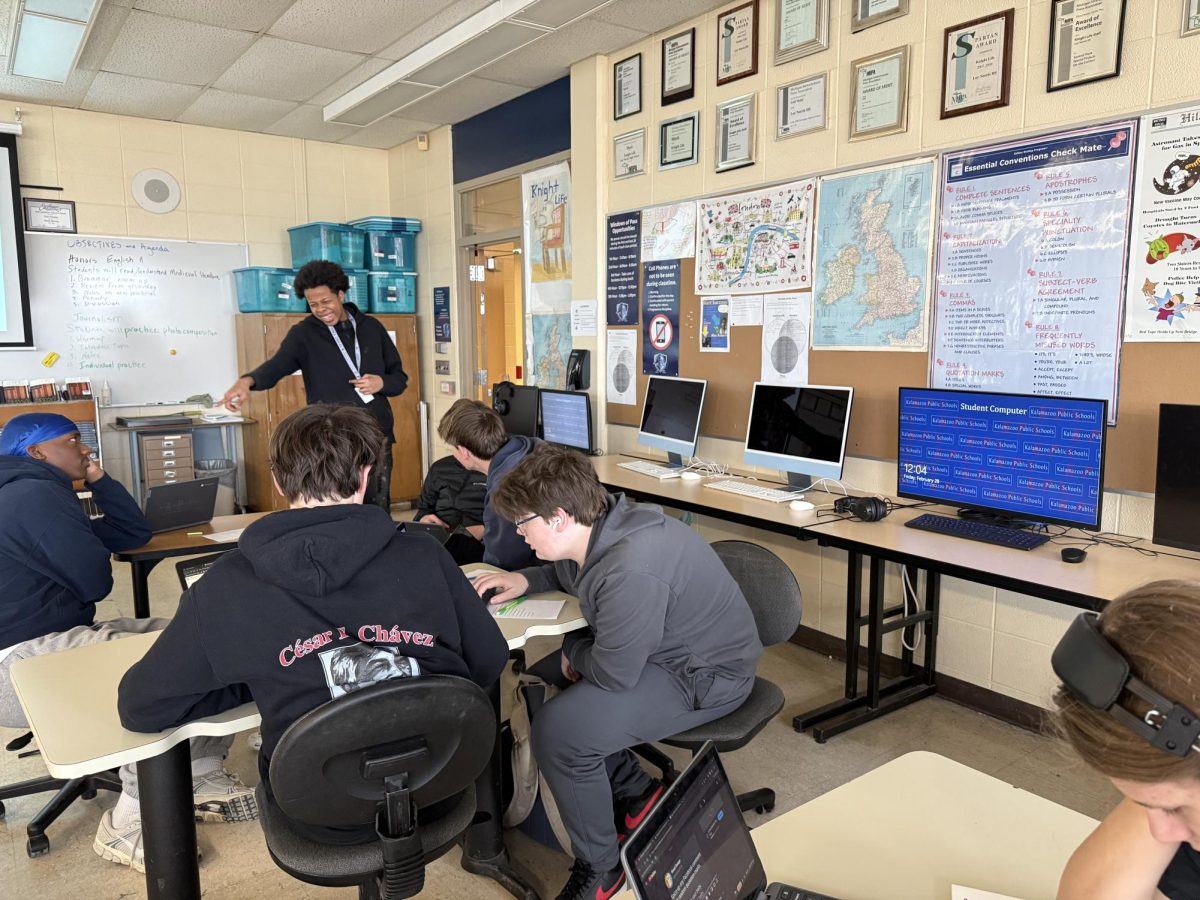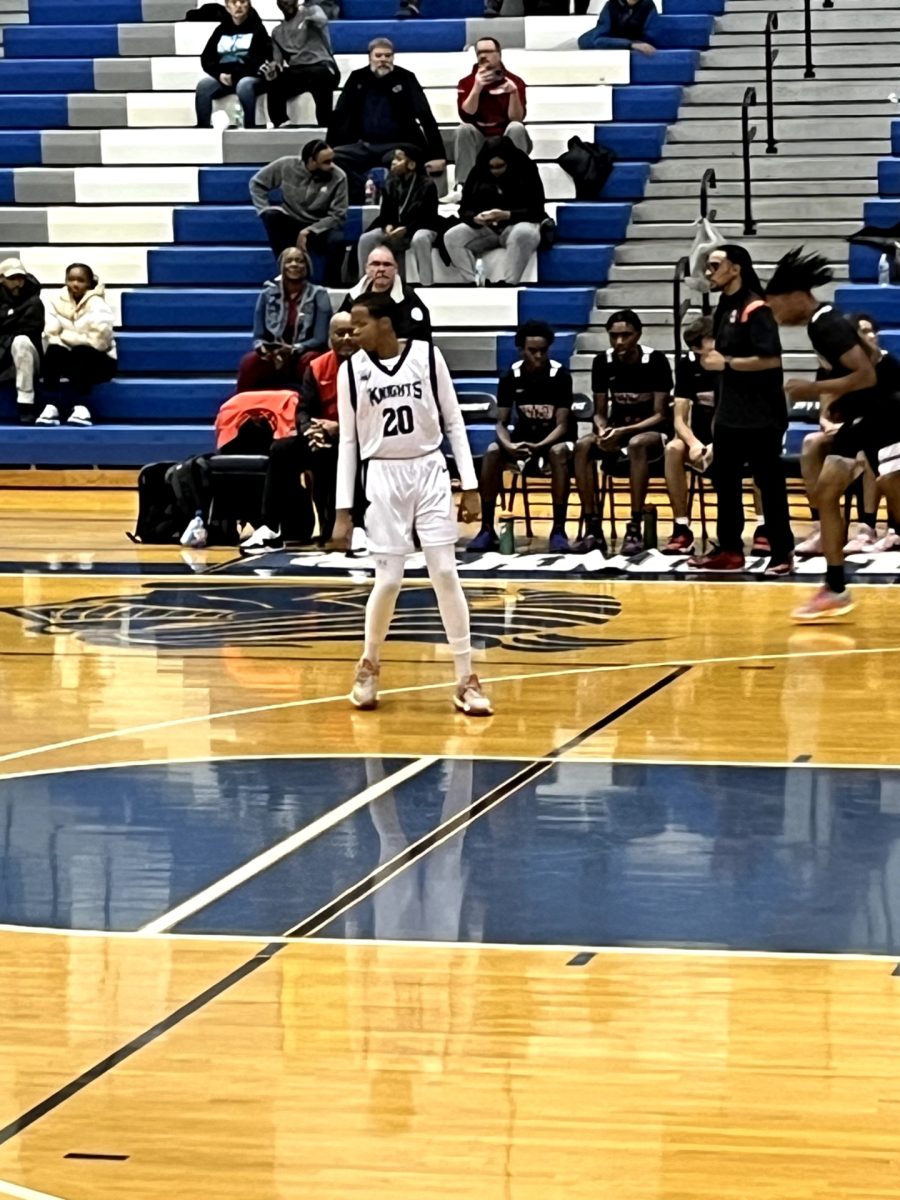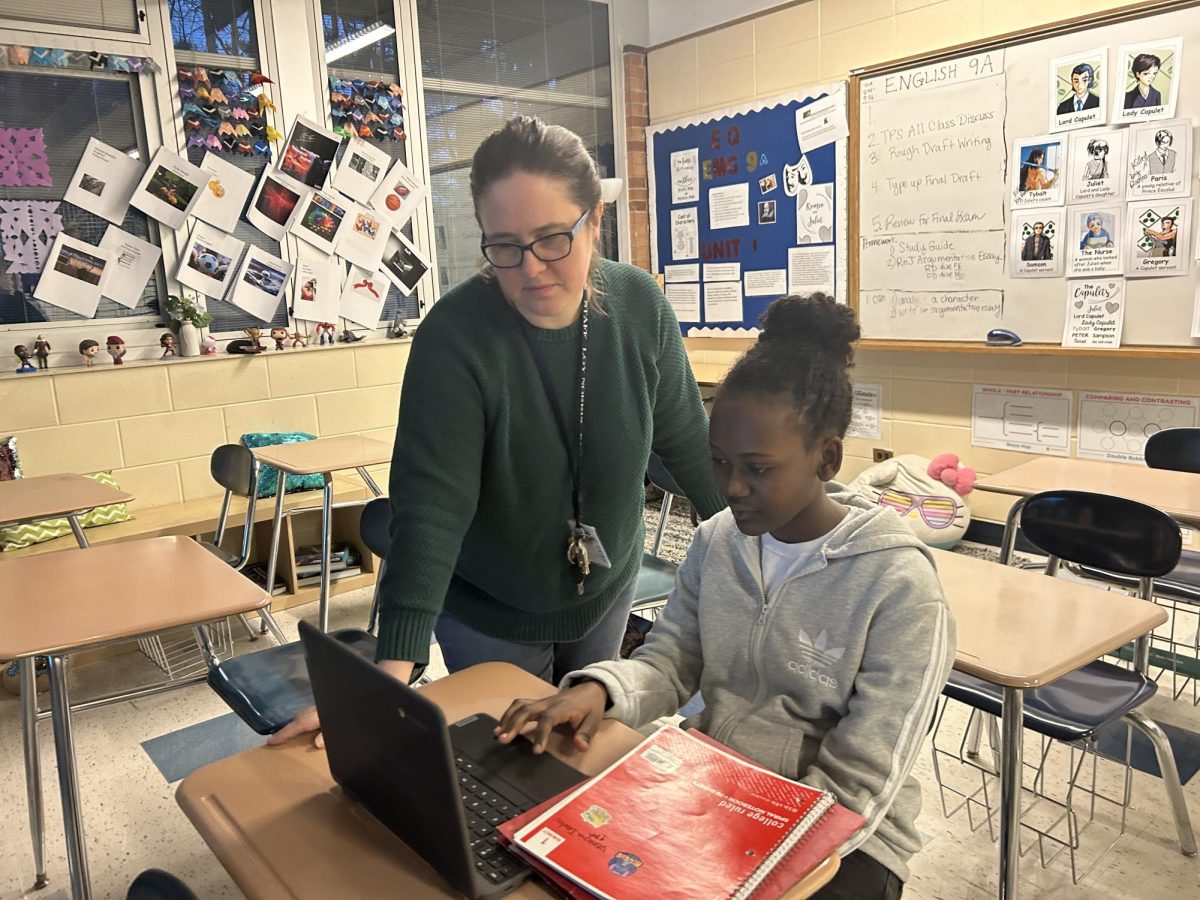
By Alexa Davis, guest writer
Grease pops in the background and the smell of fried hash browns and fries fill the air. Jakia Edmonson peeks out the cashier window and addresses the giggling kids in the car and the customer working on getting their money out to pay for their food.
“We’re getting ready to go to the race so we stopped by to get some food,” says the customer.
“Oh, that’s awesome!” replies Jakia.
Finally the customer pays for their order, and before they drive away Jakia tells them to have a nice day in a cheerful voice accompanied with a smile. This is part of her weekly routine as she works in customer service at a McDonald’s.
In every class and social circle you can always pinpoint a friend or student who you know is working a job in their high school years, either in a restaurant setting or a more rural setting, like corn detasseling. Some work for the extra money, some to keep their family financially afloat, and others just want to pass time during the long summer months and breaks.
Jakia Edmonson, a junior attending Loy Norrix high school, falls into the large class of 4.7 million teens who work. Teens may often work because they don’t have anything else to do, and the extra money to spend is appreciated.
Jakia works at a McDonald’s just off of I-94 on D Avenue. The work time consists of part- time hours during both the school year and summer months. During the summer months she works more hours and during the school year she is given more time off in order to keep up with what seems like the endless academic pressure of high school. Because Jakia doesn’t have a car yet she has to work around her mom’s schedule when figuring out what hours to take at work.
“I work to keep myself busy because I don’t really do any sports or school activities,” said Jakia, a junior attending Loy Norrix High School.
While most adults could rant on and on about how high school jobs distract from the evermost importance of a student’s grades and focus on school, working in high school has its benefits.
What do most students do with their work money? Many go out and spend it all or most of it very soon after the paycheck is received. Others save and save for one specific thing like concert tickets or cars.
“I’ve been trying to save for a car and things like that so I can have more transportation because my mom takes me,” said Jakia. “But it’s kind of hard for me to hold onto money because I like a lot of shoes and things.”
This is where the skill of budgeting comes into play. Many researchers say a high school job teaches a teen a lot about how to manage their money and how to budget for the things they want, along with future spending or money saving plans.
“The next check that comes I’m going to set up a savings account and try to keep the money on my card as well,” Jakia said with a giggle, as she knows it may be a bit difficult to curb her shopping habits.
There is actually a class that revolves around budgeting and money management that can be taken at many high schools and online as well.
“Personal financial literacy is teaching people how to manage their money and budgeting and saving for retirement and things like that,” explainsed Bradley Schmidt. “It’s all the decisions you make when it comes to money.”
Schmidt is in his fourth year of teaching personal financial literacy at Loy Norrix High School. He has noticed that many students are thankful that they took the class before they reached college, and those that pass through the class are able to apply their learned skills to the real world very quickly. He agrees with those that support the idea that a personal financial literacy class should be a graduation requirement for juniors and seniors.
“One of the benefits of having a high school job is you can put in practice what you use in school,” said Schmidt.
And that is exactly what happens. A job early on can be a teen’s introduction to the real world. There they can start applying real world skills, like money and time management. Having a job is a nice transition into many of the responsibilities an adult may have. Do you remember all of those what seemed to be useless real world math problems? The ones where Johnny only has six dollars and one CD costs x amount of dollars and a bag of chips costs y amount of dollars, how many CD’s and bags of chips can he buy? Suddenly those problems make more sense when they relate more to a person’s actual situation.
While the benefits that come with a job do nicely pair up with the money earned, there are also benefits unrelated to money at all. Many studies show that a job can boost people skills, confidence levels, personal sense of independence, and responsibility skills. Especially in a job where people skills is basically a requirement.
“Before I had this job I really didn’t care about anything, but now that I have it, it has kind of opened my eyes more,” said Jakia. “It helped me a lot. I was a shy person and they set me up in customer service, like the cashiers or the window or taking people’s orders, and since they have me doing that now I have opened up to people more and I’m not as shy as I was.”
Her job has her frequently working with the friendly or not so friendly customers, helping to develop her overall people skills and confidence levels when talking to people.
No one is saying to rush out and try and find the nearest job that you can, many in fact say not to get a job unless it is needed in high school. But if you are thinking about finding a high school job, just know that there are many benefits to having one other than the obvious money gains.
Her job is helping her to step outside of her comfort box in more than one way. Overall, she is a more responsible person and more outgoing than she was before.
“I look at things differently than when I didn’t have a job. I have a responsibility to get up for a job and to be on time,” said Jakia.







